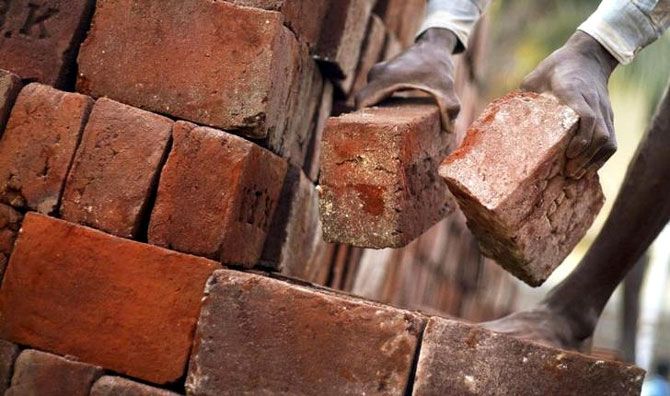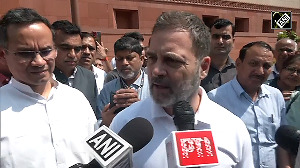Union Budget 2016-17 proposed for rationalization in case of REIT, measures to boost affordable housing and incentive for first home buyers with additional interest deduction has brought cheers even other wishes of the sector got ignored.

Budget provisions and Impact analysis
- 1. Benefits u/s 80IB for building affordable homes reintroduced with sunset clause at March 31, 2019
Propose to amend the Income-tax Act so as to provide for 100% deduction of the profits of an assessee developing and building affordable housing projects if the housing project is approved by the competent authority before the 31st March, 2019 subject to certain conditions which inter alia, include:- (i) The project is completed within a period of 3 years from the date of approval, (ii) The project is on a plot of land measuring not less than 1000 sq. metres where the project is within 25 km from the municipal limits of four metros namely Delhi, Mumbai, Chennai & Kolkata and in any other area, it is measuring not less than 2000 sq. metres where the size of the residential unit in the said areas is not more than thirty sq. metres and sixty sq. metres, respectively, (iii) where residential unit is allotted to an individual, no such unit shall be allotted to him or any member of his family, etc. These amendments will take effect from 1st April, 2017 and will, accordingly, apply in relation to the assessment year 2017-18 and subsequent assessment years.
- 2. DDT hurdle removed to make REITs a reality
To facilitate investments in Real Estate Investment Trusts, Budget proposed that any distribution made out of income of SPV (special purpose vehicle) to the REITs and InvITs (Infrastructure Investment Trusts) having specified shareholding will not be subjected to Dividend Distribution Tax (DDT).
Proposed to provide a special dispensation and exemption from levy of DDT and salient feature of it are: — (a) exemption from levy of DDT in respect of distributions made by SPV to the business trust; (b) such dividend received by the business trust and its investor shall not be taxable in the hands of trust or investors; (c) the exemption from levy of DDT would only be in the cases where the business trust either holds 100% of the share capital of the SPV or holds all of the share capital other than that which is required to be held by any other entity as part of any direction of any Government or specific requirement of any law to this effect or which is held by Government or Government bodies; and (d) the exemption from the levy of DDT would only be in respect of dividends paid out of current income after the date when the business trust acquires the shareholding referred in (c) above in the SPV. The dividends paid out of accumulated and current profits upto this date shall be liable for levy of DDT as and when any dividend out of these profits is distributed by the company either to the business trust or any other shareholder. The amendment will take effect from 1st June, 2016.
- 3. Additional deduction of Rs 50000 u/s 80EE of Income Tax Act for first home buyers.
The existing provisions of section 80EE provide a deduction of up to Rs 1 lakh rupees in respect of interest paid on loan by an individual for acquisition of a residential house property. This benefit is available for the two assessment years beginning on the 1st day of April 2014 and on the 1st day of April 2015. Now it is proposed to incentivise first-home buyers availing home loans, by providing additional deduction in respect of interest on loan taken for residential house property from any financial institution up to Rs. 50,000. This incentive is proposed to be extended to a house property of a value less than fifty lakhs rupees in respect of which a loan of an amount not exceeding thirty five lakh rupees has been sanctioned during the period from the 1st day of April, 2016 to the 31stday of March, 2017. It is also proposed to extend the benefit of deduction till the repayment of loan continues. The deduction under the proposed section is over and above the limit of Rs 2,00,000 provided for a self-occupied property under section 24 of the Act. These amendment will take effect from 1st April, 2017 and will, accordingly, apply in relation to the assessment year 2017-18 and subsequent assessment years.
- 4. Maximum deduction under 80GG to Rs 60,000 p.a from Rs 24000 earlier
The existing provisions of Section 80GG provide for a deduction of any expenditure incurred by an individual in excess of 10% of his total income towards payment of rent in respect of any furnished or unfurnished accommodation occupied by him for the purposes of his own residence if he is not granted house rent allowance by his employer, to the extent such excess expenditure does not exceed two thousand rupees per month or twenty-five per cent of his total income for the year, whichever is less, subject to other conditions as prescribed therein. In order to provide relief to the individual tax payers, it is proposed to amend section 80GG so as to increase the maximum limit of deduction from existing Rs. 2000 per month to Rs. 5000 per month. These amendments are proposed to be made effective from the 1st day of April, 2017 and shall accordingly apply in relation to assessment year 2017-18 and subsequent years.
- 5. Tax rabate hiked from Rs 2000 to Rs 5000 for individuals with income less than Rs 5 lakhs
The existing provisions of section 87A of Income-tax Act, provide for a rebate of an amount equal to 100% of such income-tax or an amount of two thousand rupees, whichever is less, from the amount of income-tax to an individual resident in India whose total income does not exceed five hundred thousand rupees. With the objective to provide relief to resident individuals in the lower income slab, it is proposed to amend section 87A so as to increase the maximum amount of rebate available under this provision from existing Rs.2,000 to Rs.5,000. This amendment will take effect from 1stApril, 2017 and will accordingly apply in relation to assessment year 2017-18 and subsequent assessment years.
- 6. Increase in time period for acquisition or construction of self-occupied house property for claiming deduction of interest from 3 to 5 years
The existing provision of Clause (b) of section 24 provides that interest payable on capital borrowed for acquisition or construction of a house property shall be deducted while computing income from house property. The second proviso to the said clause provides that a deduction of an amount of 2 lakh rupees shall be allowed where a house property referred to in sub-section (2) of section 23 (self-occupied house property) has been acquired or constructed with capital borrowed on or after the 01 April, 1999 and such acquisition or construction is completed within 3 years from the end of the financial year in which capital was borrowed. In view of the fact that housing projects often take longer time for completion, it is proposed that second proviso of clause (b) of section 24 be amended to provide that the deduction under the said proviso on account of interest paid on capital borrowed for acquisition or construction of a self-occupied house property shall be available if the acquisition or construction is completed within 5 years from the end of the financial year in which capital was borrowed. This amendment will take effect from 1st day of April, 2017 and will, accordingly apply in relation to assessment year 2017-2018 and subsequent years.
- 7. Simplification and rationalization of provisions relating to taxation of unrealized rent and arrears of rent
Existing provisions of sections 25A, 25AA and 25B relate to special provisions on taxation of unrealized rent allowed as deduction when realized subsequently, unrealized rent received subsequently and arrears of rent received respectively. It is proposed to provide that standard deduction of 30% shall be allowed against the amount received on account of unrealized rent while computing the house property income. The amendment will take effect from 1st day of April, 2017 and will, accordingly, apply in relation to the assessment year 2017-2018 and subsequent years.
- 8. Tax benefits for companies/units operating in financial service centres
To promote setting up of international financial centre in India, it is proposed to provide for the following tax benefits:- 1) The companies located in international financial services centre shall not be liable to dividend distribution tax; 2) Minimum Alternate Tax shall be charged at the rate of 9% from units located in international financial services centre; 3) The transaction in foreign currency of sale of equity share or units of equity oriented funds or units of a business trust taking place on a recognized stock exchange established in international financial services centre shall not be liable to securities transaction tax. It is also proposed that the gains arising from transfer of such long term capital asset shall be exempt from tax; 4) The transaction in foreign currency of sale of commodity derivatives taking place on a recognized association established in international financial services centre shall not be liable to commodity transaction tax.
- 9. Benefits u/s 10AA of Income Tax Act for new SEZ units that commence operations before 31.3.2020
Proposed to amend section 10AA of the Income-tax Act to provide for a sunset date of 31.03.2020 for commencement of activity of manufacture or production of any article or thing or providing services by a unit located in a Special Economic Zone for availing the deduction under said section.
- 10. Incentives available under 35AD- Deduction in respect of affordable housing project, deduction shall be restricted to 100 per cent of capital expenditure (other than capital expenditure on land, goodwill and financial assets) w.e.f. 01.4.2017 (i.e. from previous year 2017-18 onwards) as against a current deduction of 150%.
- 11. Section 80-IAB of the Income-tax Act : Deduction for development of Special Economic Zone. It is proposed to amend section 80IAB of the Income-tax Act so as to provide that no deduction shall be available under this section where the development of Special Economic Zone begins on or after 1st April, 2017.
- 12. Extending excise duty exemption, presently available to Concrete Mix manufactured at site for use in construction work at such site to Ready Mix Concrete.
- 13. Service Tax on services in respect of- (i) construction services under Housing For All (HFA) (Urban) Mission/ Pradhan Mantri Awas Yojana (PMAY); (ii) construction projects under “Affordable housing in partnership” component of PMAY, subject to carpet area of dwelling units of such projects not exceeding 60 square metres; (iii) low cost houses up to a carpet area of 60 square metres per house in a housing project under any housing scheme of the State Government, being exempted, with effect from 01.03.2016. Currently it attracts a service tax of 5.6%
Industry Expectations
Industry status to real estate development
The industry status will help the sector access bank lending at average interest rates at low collateral compared to the prevailing high risk rates. Further, it will help sector access central / state subsidies in case developers are building in backward regions / north eastern regions and raise ECBs.
Infrastructure status (Section 80IA) should be given for development of an integrated township and group housing on area more than 10 acres involving provision of residential, educational, medical, community, commercial or institutional buildings and creation of required facilities including roads, water supply, water treatment, sanitation and sewerage systems and solid waste treatment and management systems.
Higher deduction on home loans repayments
The deduction available under section 24 of the Act is to a maximum limit of Rs. 2,00,000/- for interest on loan taken for acquisition/construction of self-occupied house property. Given the rising interest rates and the increase in property prices and also to spur the demand for housing, it is recommended the exemption should be increased to at least Rs. 3,00,000/- per annum.
DDT should be done away in case of REIT income
Government should consider making REIT income tax free both for REIT SPV and individual shareholders, whether residents or non residents. Government should also provide exemption from capital gains to sponsor of REIT on disposal of units, which in any case is exempt for other units u/s 10(38). Similarly stamp duty exemption – SEBI equivalent to mortgage should also be made available. For exemption under IT ACT 1961, the cutoff date for completing development of SEZs is reset to 31st March 2015 and for starting manufacturing etc to 31st March 2017.
Unsold housing stock held by a developer to be kept out of Section 22 of Income tax Act
The real estate developers are not in the business of renting out of flats and letting out vacant or other properties. Thus, such real estate developers cannot be taxed in respect of annual letting value (ALV) of flats notionally because they (as owners) are occupants of the flats, and such occupation is limited for the purpose of business, as a builder.
Characterization of Rental Income
There is an ambiguity prevailing around characterization of rental income as house property or business income. Such characterization should be clarified so as to ensure that uniform practices are followed across industry and litigation arising in this regard is removed.
MAT and DDT relaxation for SEZs
Currently, both MAT and DDT are applicable to developers and unit holders. Industry players seek relaxation/ exemption to spur‚ Make in India‛ initiative.
Impetus to affordable housing
1% interest subvention on home loans of up to Rs 25 lacs for homes up to Rs 40 lacs. Planned outlay of Rs 10000 crore for rural housing and Rs 5600 crore for urban housing in FY16. Industry seeks continuance of interest subvention on home loans, priority sector lending status for affordable housing, and Increased allocation for rural and urban housing.
Stock to watch
Prestige Estates, DLF, Mahindra Life Space and Kolte Patil, Brigade Enterprises
Budget Impact
Rationalization of tax governing REITs i.e. Dividend Distribution tax exception will make the REIT more attractive for investors and allow the domestic real estate players with large rent yielding assets such as DLF, Prestige Estates, Kolte Patil, Brigade Enterprises are expected to see cash inflow by listing REIT. Similarly tax incentives for units operating in financial centres will help growth of financial centres in India and boost the demand for commercial real estate. Benefits u/s 10AA to new SEZ units commencing operation before 31.3.2020 will augurs well for players with SEZ portfolio. Extension of excise duty to ready mix concrete will lower the construction cost auguring well for the industry.
Given latent demand in affordable housing segment, the reintroduction of 80IB benefits for affordable housing units will incentivize the real estate players to launch new projects in that segment leading to monetization of existing land bank. Overall Union Budget 2016-17 does not have anything negative for the sector and thus makes it positive for the Real Estate sector.










 © 2025
© 2025